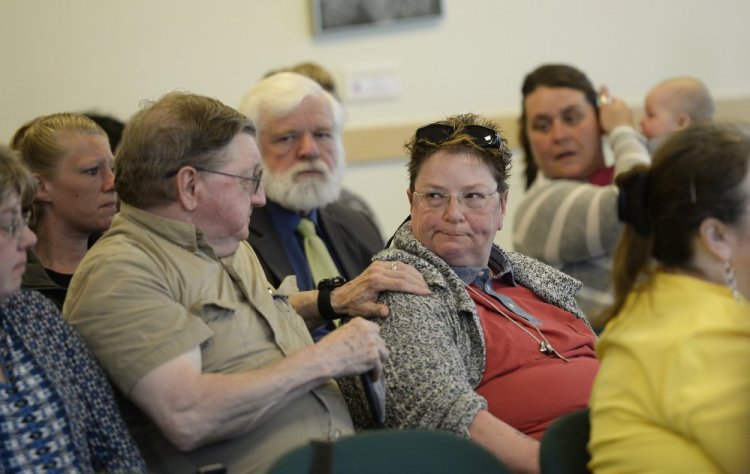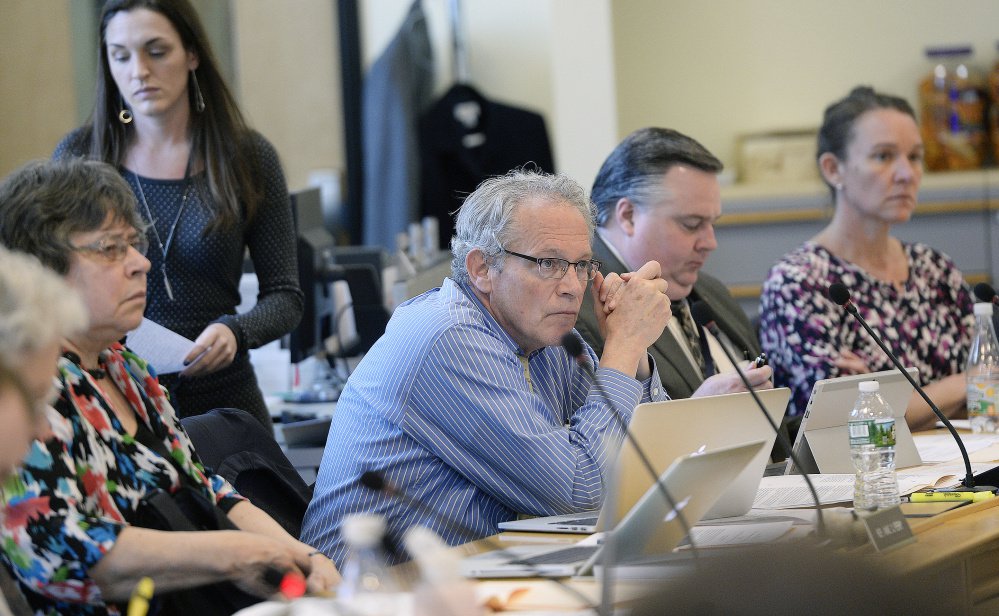Mental health advocates on Tuesday testified in favor of a bill that would reverse changes made by the Maine Department of Health and Human Services in 2016 to mental health services for MaineCare recipients. They say those changes made it harder for some people to get the care they need under a MaineCare program.
But state officials defended the new system, saying it is working properly.
The committee will deliberate on the bill during a meeting within the next few weeks.
About 30 people spoke in favor of the bill in a hearing before the Legislature’s Health and Human Services Committee in Augusta, while DHHS was opposed.
The 2016 changes restricted mental health services under a particular section of MaineCare to people with schizophrenic disorders or others who proved they had other mental health problems so severe that they needed the services. Advocates say the changes affected about 8,000 people, although it’s unknown how many actually lost services.
DHHS officials have argued that many patients were able to obtain the services under other sections of MaineCare, which is Maine’s version of Medicaid, the federal-state program that provides health care for low-income families and individuals with disabilities.
Neither mental health advocates nor DHHS officials on Tuesday could provide estimates of how many people lost services or were able to qualify under another part of MaineCare.
Donna Deigan, 50, of Brunswick, who has post-traumatic stress disorder, bipolar disorder and anxiety, said last year after her mother died in June and she went to the funeral in Ohio, she returned to Maine only to find her mental health services had been cut off.
“When I returned here, I had nothing,” Deigan said. She said that in the following months, she became suicidal, and it took her nearly six months to regain services under another MaineCare program.
Those services are not as comprehensive as when she was receiving four hours of services per day, five days a week under the previous program. Now she sees a therapist one day a week, although she could obtain up to three days per week of services.
“Denying necessary treatment to any individual who needs help, and delaying services to someone until they are reclassified is like telling a heart attack victim, ‘Sorry, you are not valuable enough to save, go home and fix your heart yourself!’ ” Deigan said.
The provision that DHHS changed, known as Section 17, provides unlimited mental health services and is designed for those with the most severe illnesses, while services can be capped under other sections of MaineCare.
Section 17 also gives patients case management services to help them navigate what can be a complex process in acquiring and maintaining services, and provides patients in-home supports, such as help with daily living.
DHHS officials say the system needed to be changed because Section 17 was being used beyond its intended scope.
Dr. Michelle Gardner, clinical director of Dorothea Dix Psychiatric Center in Bangor, said “MaineCare eligibility for Section 17 allowed nearly every individual with a diagnosis of mental illness to receive case management. For many of these members, case management was not a clinically indicated service.”
Gardner said as a result of the changes, the waiting list for Section 17 services declined from more than 300 to 22.
But Lori Gramlich, executive director of the Maine chapter of the National Association of Social Workers, said people are losing services, and that many who have severe mental illnesses are not getting the help they need. Gramlich said many people with anxiety and depression disorders need more extensive help, not just those with schizophrenic disorders.
“These are our most vulnerable people,” Gramlich said. “We should be looking at how functional they are with their illness, and not the diagnoses.”
The state does permit those with mental illnesses other than schizophrenic disorders to receive Section 17 services, but they have to prove to the state that they need the services.
“Should these individuals be so functionally impaired that they too become at risk for homelessness, incarceration or hospitalization, they will qualify for services under Section 17,” Gardner said.
Sen. Shenna Bellows, D-Manchester, the bill’s sponsor, said the social safety net for people with mental illness is collapsing in Maine. Bellows said she’s heard many stories of patients losing services and not being able to qualify for other help through DHHS. She said she and others warned lawmakers last year that this would happen.
“I am here to tell you that DHHS was wrong then, and they are wrong today,” Bellows said. “Every concern I expressed last spring came to pass. Clients lost services. Programs closed.”
Send questions/comments to the editors.





Success. Please wait for the page to reload. If the page does not reload within 5 seconds, please refresh the page.
Enter your email and password to access comments.
Hi, to comment on stories you must . This profile is in addition to your subscription and website login.
Already have a commenting profile? .
Invalid username/password.
Please check your email to confirm and complete your registration.
Only subscribers are eligible to post comments. Please subscribe or login first for digital access. Here’s why.
Use the form below to reset your password. When you've submitted your account email, we will send an email with a reset code.